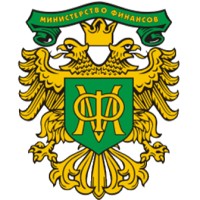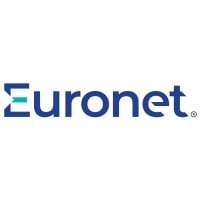
Ministry of Finance of the Russian Federation Company Cyber Security Posture
minfin.ruThe Ministry of Finance (Minfin) is a federal executive body responsible for drafting and implementing government policy and legal regulation in the field of budget, tax, insurance, foreign exchange, banking, credit cooperatives, microfinance, financial markets, public debt, auditing, accounting and reporting, the production, processing and circulation of precious metals and precious stones, customs duties, customs valuation, formation and investment of pension funds, including those included in the reserve fund, organising and conducting lotteries and gambling, production and circulation of secured printing materials, financial support for public services, housing investment funds for military personnel-participants in the accumulated mortgage system, state regulation of private pension funds, asset managers, specialised depositaries and actuaries for private pensions, mandatory pension insurance and occupational pension insurance (excluding state regulation of relations between private pension funds and private pension fund members, the insured individuals and their legal successors, as well as in regard to legal relationships which are the subject of the Pension Fund of the Russian Federation), state regulation of shared construction of residential buildings and/or other immovable property, and the credit reference bureau.
MFRF Company Details
ministry-of-finance-of-the-russian-federation
10,001+ employees
0
52
Financial Services
minfin.ru
Scan still pending
MIN_3107355
In-progress
Between 800 and 900
This score is AI-generated and less favored by cyber insurers, who prefer the TPRM score.
 MFRF Global Score
MFRF Global Score.png)

Ministry of Finance of the Russian Federation Company Scoring based on AI Models
| Model Name | Date | Description | Current Score Difference | Score |
|---|---|---|---|---|
| AVERAGE-Industry | 03-12-2025 | This score represents the average cybersecurity rating of companies already scanned within the same industry. It provides a benchmark to compare an individual company's security posture against its industry peers. | N/A | Between 800 and 900 |
Ministry of Finance of the Russian Federation Company Cyber Security News & History
| Entity | Type | Severity | Impact | Seen | Url ID | Details | View |
|---|
Ministry of Finance of the Russian Federation Company Subsidiaries

The Ministry of Finance (Minfin) is a federal executive body responsible for drafting and implementing government policy and legal regulation in the field of budget, tax, insurance, foreign exchange, banking, credit cooperatives, microfinance, financial markets, public debt, auditing, accounting and reporting, the production, processing and circulation of precious metals and precious stones, customs duties, customs valuation, formation and investment of pension funds, including those included in the reserve fund, organising and conducting lotteries and gambling, production and circulation of secured printing materials, financial support for public services, housing investment funds for military personnel-participants in the accumulated mortgage system, state regulation of private pension funds, asset managers, specialised depositaries and actuaries for private pensions, mandatory pension insurance and occupational pension insurance (excluding state regulation of relations between private pension funds and private pension fund members, the insured individuals and their legal successors, as well as in regard to legal relationships which are the subject of the Pension Fund of the Russian Federation), state regulation of shared construction of residential buildings and/or other immovable property, and the credit reference bureau.
Access Data Using Our API

Get company history
.png)
MFRF Cyber Security News
Down But Not Out: The Russian Economy Under Western Sanctions
Russia's economy has been seriously impacted by Western sanctions, though its resilience has been continuously underestimated.
Foreign Ministry Spokesperson Mao Ning’s Regular Press Conference on December 11, 2024
We urge the US to stop using cybersecurity issues to smear and vilify China, and stop imposing illicit unilateral sanctions. China will do what ...
Canada needs an economic statecraft strategy to address its vulnerabilities
Canada is facing economic threats from China and Russia targeting its critical industries and infrastructure. The Business Council of Canada ...
Cyber attack on Italy's Foreign Ministry, airports claimed by pro-Russian hacker group
Hackers targeted around ten official websites in Italy on Saturday, including the websites of the Foreign Ministry and Milan's two airports, ...
Russia/Ukraine Sanctions Update - Month of July
Russia/Ukraine Sanctions Update - Month of July · EU Council renews economic sanctions against Russia for a further 6 months · EU Council ...
Denmark forms 'crisis ministry' to combat spying and cyberattacks as Russian threat intensifies
Denmark's government will create a new ministry for state security and emergency management in a bid to better prepare to deal with ...
Cyber sanctions imposed on Russian citizens for cybercrime
Australia has imposed targeted financial sanctions and travel bans on three Russian citizens for their involvement in the Evil Corp cybercrime group.
FACT SHEET: Imposing Costs for Harmful Foreign Activities by the Russian Government
The Biden administration is taking actions to impose costs on Russia for actions by its government and intelligence services against US sovereignty and ...
Belgian banking websites targeted by cyberattacks
A new wave of cyberattacks targeted Belgian websites on Thursday morning. The attacks specifically targeted the websites of Febelfin, ...

MFRF Similar Companies

Lincoln Financial
Lincoln Financial (NYSE: LNC) helps people to confidently plan for their version of a successful future. We focus on identifying a clear path to financial security, with products including annuities, life insurance, group protection, and retirement plan services. With our 120-year track record of

Motilal Oswal Financial Services Ltd
Motilal Oswal Financial Services Ltd. (MOFSL) was founded in 1987 as a small sub-broking unit, with just 2 people running the show. Focus on a customer-first attitude, ethical and transparent business practices, respect for professionalism, research-based value investing, and implementation of cutti

Euronet Merchant Services APAC (f.k.a Pure Commerce)
Euronet Worldwide is a global leader in electronic payment and transaction processing solutions. Our clients range from financial institutions, retailers, service providers to individual consumers. Our global payment network serves clients in 200 countries. Our offering entails comprehensive ATM, PO

Paytm
Paytm started the Digital Revolution in India. And we went on to become India’s leading Payments App. Today, more than 20 Million merchants & businesses are powered by Paytm to Accept Payments digitally. This is because more than 300 million Indians use Paytm to Pay at their stores. And that’s

Fidelity Investments
Fidelity’s mission is to strengthen the financial well-being of our customers and deliver better outcomes for the clients and businesses we serve. Fidelity’s strength comes from the scale of our diversified, market-leading financial services businesses that serve individuals, families, employers, we

Rockall Technologies (now Broadridge)
Rockall Technologies is now a part of Broadridge. Broadridge Financial Solutions (NYSE: BR), a global Fintech leader with $5 billion in revenues, provides the critical infrastructure that powers investing, corporate governance, and communications to enable better financial lives. We deliver tech

Frequently Asked Questions (FAQ) on Cybersecurity Incidents
MFRF CyberSecurity History Information
Total Incidents: According to Rankiteo, MFRF has faced 0 incidents in the past.
Incident Types: As of the current reporting period, MFRF has not encountered any cybersecurity incidents.
Total Financial Loss: The total financial loss from these incidents is estimated to be {total_financial_loss}.
Cybersecurity Posture: The company's overall cybersecurity posture is described as The Ministry of Finance (Minfin) is a federal executive body responsible for drafting and implementing government policy and legal regulation in the field of budget, tax, insurance, foreign exchange, banking, credit cooperatives, microfinance, financial markets, public debt, auditing, accounting and reporting, the production, processing and circulation of precious metals and precious stones, customs duties, customs valuation, formation and investment of pension funds, including those included in the reserve fund, organising and conducting lotteries and gambling, production and circulation of secured printing materials, financial support for public services, housing investment funds for military personnel-participants in the accumulated mortgage system, state regulation of private pension funds, asset managers, specialised depositaries and actuaries for private pensions, mandatory pension insurance and occupational pension insurance (excluding state regulation of relations between private pension funds and private pension fund members, the insured individuals and their legal successors, as well as in regard to legal relationships which are the subject of the Pension Fund of the Russian Federation), state regulation of shared construction of residential buildings and/or other immovable property, and the credit reference bureau..
Detection and Response: The company detects and responds to cybersecurity incidents through {description_of_detection_and_response_process}.
Incident Details
Incident 1: Ransomware Attack
Title: {Incident_Title}
Description: {Brief_description_of_the_incident}
Date Detected: {Detection_Date}
Date Publicly Disclosed: {Disclosure_Date}
Date Resolved: {Resolution_Date}
Type: {Type_of_Attack}
Attack Vector: {Attack_Vector}
Vulnerability Exploited: {Vulnerability}
Threat Actor: {Threat_Actor}
Motivation: {Motivation}
Incident 2: Data Breach
Title: {Incident_Title}
Description: {Brief_description_of_the_incident}
Date Detected: {Detection_Date}
Date Publicly Disclosed: {Disclosure_Date}
Date Resolved: {Resolution_Date}
Type: {Type_of_Attack}
Attack Vector: {Attack_Vector}
Vulnerability Exploited: {Vulnerability}
Threat Actor: {Threat_Actor}
Motivation: {Motivation}
Common Attack Types: As of now, the company has not encountered any reported incidents involving common cyberattacks.
Identification of Attack Vectors: The company identifies the attack vectors used in incidents through {description_of_identification_process}.
Impact of the Incidents
Incident 1: Ransomware Attack
Financial Loss: {Financial_Loss}
Data Compromised: {Data_Compromised}
Systems Affected: {Systems_Affected}
Downtime: {Downtime}
Operational Impact: {Operational_Impact}
Conversion Rate Impact: {Conversion_Rate_Impact}
Revenue Loss: {Revenue_Loss}
Customer Complaints: {Customer_Complaints}
Brand Reputation Impact: {Brand_Reputation_Impact}
Legal Liabilities: {Legal_Liabilities}
Identity Theft Risk: {Identity_Theft_Risk}
Payment Information Risk: {Payment_Information_Risk}
Incident 2: Data Breach
Financial Loss: {Financial_Loss}
Data Compromised: {Data_Compromised}
Systems Affected: {Systems_Affected}
Downtime: {Downtime}
Operational Impact: {Operational_Impact}
Conversion Rate Impact: {Conversion_Rate_Impact}
Revenue Loss: {Revenue_Loss}
Customer Complaints: {Customer_Complaints}
Brand Reputation Impact: {Brand_Reputation_Impact}
Legal Liabilities: {Legal_Liabilities}
Identity Theft Risk: {Identity_Theft_Risk}
Payment Information Risk: {Payment_Information_Risk}
Average Financial Loss: The average financial loss per incident is {average_financial_loss}.
Commonly Compromised Data Types: The types of data most commonly compromised in incidents are {list_of_commonly_compromised_data_types}.
Incident 1: Ransomware Attack
Entity Name: {Entity_Name}
Entity Type: {Entity_Type}
Industry: {Industry}
Location: {Location}
Size: {Size}
Customers Affected: {Customers_Affected}
Incident 2: Data Breach
Entity Name: {Entity_Name}
Entity Type: {Entity_Type}
Industry: {Industry}
Location: {Location}
Size: {Size}
Customers Affected: {Customers_Affected}
Response to the Incidents
Incident 1: Ransomware Attack
Incident Response Plan Activated: {Yes/No}
Third Party Assistance: {Yes/No}
Law Enforcement Notified: {Yes/No}
Containment Measures: {Containment_Measures}
Remediation Measures: {Remediation_Measures}
Recovery Measures: {Recovery_Measures}
Communication Strategy: {Communication_Strategy}
Adaptive Behavioral WAF: {Adaptive_Behavioral_WAF}
On-Demand Scrubbing Services: {On_Demand_Scrubbing_Services}
Network Segmentation: {Network_Segmentation}
Enhanced Monitoring: {Enhanced_Monitoring}
Incident 2: Data Breach
Incident Response Plan Activated: {Yes/No}
Third Party Assistance: {Yes/No}
Law Enforcement Notified: {Yes/No}
Containment Measures: {Containment_Measures}
Remediation Measures: {Remediation_Measures}
Recovery Measures: {Recovery_Measures}
Communication Strategy: {Communication_Strategy}
Adaptive Behavioral WAF: {Adaptive_Behavioral_WAF}
On-Demand Scrubbing Services: {On_Demand_Scrubbing_Services}
Network Segmentation: {Network_Segmentation}
Enhanced Monitoring: {Enhanced_Monitoring}
Incident Response Plan: The company's incident response plan is described as {description_of_incident_response_plan}.
Third-Party Assistance: The company involves third-party assistance in incident response through {description_of_third_party_involvement}.
Data Breach Information
Incident 2: Data Breach
Type of Data Compromised: {Type_of_Data}
Number of Records Exposed: {Number_of_Records}
Sensitivity of Data: {Sensitivity_of_Data}
Data Exfiltration: {Yes/No}
Data Encryption: {Yes/No}
File Types Exposed: {File_Types}
Personally Identifiable Information: {Yes/No}
Prevention of Data Exfiltration: The company takes the following measures to prevent data exfiltration: {description_of_prevention_measures}.
Handling of PII Incidents: The company handles incidents involving personally identifiable information (PII) through {description_of_handling_process}.
Ransomware Information
Incident 1: Ransomware Attack
Ransom Demanded: {Ransom_Amount}
Ransom Paid: {Ransom_Paid}
Ransomware Strain: {Ransomware_Strain}
Data Encryption: {Yes/No}
Data Exfiltration: {Yes/No}
Ransom Payment Policy: The company's policy on paying ransoms in ransomware incidents is described as {description_of_ransom_payment_policy}.
Data Recovery from Ransomware: The company recovers data encrypted by ransomware through {description_of_data_recovery_process}.
Regulatory Compliance
Incident 1: Ransomware Attack
Regulations Violated: {Regulations_Violated}
Fines Imposed: {Fines_Imposed}
Legal Actions: {Legal_Actions}
Regulatory Notifications: {Regulatory_Notifications}
Incident 2: Data Breach
Regulations Violated: {Regulations_Violated}
Fines Imposed: {Fines_Imposed}
Legal Actions: {Legal_Actions}
Regulatory Notifications: {Regulatory_Notifications}
Regulatory Frameworks: The company complies with the following regulatory frameworks regarding cybersecurity: {list_of_regulatory_frameworks}.
Ensuring Regulatory Compliance: The company ensures compliance with regulatory requirements through {description_of_compliance_measures}.
Lessons Learned and Recommendations
Incident 1: Ransomware Attack
Lessons Learned: {Lessons_Learned}
Incident 2: Data Breach
Lessons Learned: {Lessons_Learned}
Incident 1: Ransomware Attack
Recommendations: {Recommendations}
Incident 2: Data Breach
Recommendations: {Recommendations}
Key Lessons Learned: The key lessons learned from past incidents are {list_of_key_lessons_learned}.
Implemented Recommendations: The company has implemented the following recommendations to improve cybersecurity: {list_of_implemented_recommendations}.
References
Additional Resources: Stakeholders can find additional resources on cybersecurity best practices at {list_of_additional_resources}.
Investigation Status
Incident 1: Ransomware Attack
Investigation Status: {Investigation_Status}
Incident 2: Data Breach
Investigation Status: {Investigation_Status}
Communication of Investigation Status: The company communicates the status of incident investigations to stakeholders through {description_of_communication_process}.
Stakeholder and Customer Advisories
Incident 1: Ransomware Attack
Stakeholder Advisories: {Stakeholder_Advisories}
Customer Advisories: {Customer_Advisories}
Incident 2: Data Breach
Stakeholder Advisories: {Stakeholder_Advisories}
Customer Advisories: {Customer_Advisories}
Advisories Provided: The company provides the following advisories to stakeholders and customers following an incident: {description_of_advisories_provided}.
Initial Access Broker
Incident 1: Ransomware Attack
Entry Point: {Entry_Point}
Reconnaissance Period: {Reconnaissance_Period}
Backdoors Established: {Backdoors_Established}
High Value Targets: {High_Value_Targets}
Data Sold on Dark Web: {Yes/No}
Incident 2: Data Breach
Entry Point: {Entry_Point}
Reconnaissance Period: {Reconnaissance_Period}
Backdoors Established: {Backdoors_Established}
High Value Targets: {High_Value_Targets}
Data Sold on Dark Web: {Yes/No}
Monitoring and Mitigation of Initial Access Brokers: The company monitors and mitigates the activities of initial access brokers through {description_of_monitoring_and_mitigation_measures}.
Post-Incident Analysis
Incident 1: Ransomware Attack
Root Causes: {Root_Causes}
Corrective Actions: {Corrective_Actions}
Incident 2: Data Breach
Root Causes: {Root_Causes}
Corrective Actions: {Corrective_Actions}
Post-Incident Analysis Process: The company's process for conducting post-incident analysis is described as {description_of_post_incident_analysis_process}.
Corrective Actions Taken: The company has taken the following corrective actions based on post-incident analysis: {list_of_corrective_actions_taken}.
Additional Questions
General Information
Ransom Payment History: The company has {paid/not_paid} ransoms in the past.
Last Ransom Demanded: The amount of the last ransom demanded was {last_ransom_amount}.
Last Attacking Group: The attacking group in the last incident was {last_attacking_group}.
Incident Details
Most Recent Incident Detected: The most recent incident detected was on {most_recent_incident_detected_date}.
Most Recent Incident Publicly Disclosed: The most recent incident publicly disclosed was on {most_recent_incident_publicly_disclosed_date}.
Most Recent Incident Resolved: The most recent incident resolved was on {most_recent_incident_resolved_date}.
Impact of the Incidents
Highest Financial Loss: The highest financial loss from an incident was {highest_financial_loss}.
Most Significant Data Compromised: The most significant data compromised in an incident was {most_significant_data_compromised}.
Most Significant System Affected: The most significant system affected in an incident was {most_significant_system_affected}.
Response to the Incidents
Third-Party Assistance in Most Recent Incident: The third-party assistance involved in the most recent incident was {third_party_assistance_in_most_recent_incident}.
Containment Measures in Most Recent Incident: The containment measures taken in the most recent incident were {containment_measures_in_most_recent_incident}.
Data Breach Information
Most Sensitive Data Compromised: The most sensitive data compromised in a breach was {most_sensitive_data_compromised}.
Number of Records Exposed: The number of records exposed in the most significant breach was {number_of_records_exposed}.
Ransomware Information
Highest Ransom Demanded: The highest ransom demanded in a ransomware incident was {highest_ransom_demanded}.
Highest Ransom Paid: The highest ransom paid in a ransomware incident was {highest_ransom_paid}.
Regulatory Compliance
Highest Fine Imposed: The highest fine imposed for a regulatory violation was {highest_fine_imposed}.
Most Significant Legal Action: The most significant legal action taken for a regulatory violation was {most_significant_legal_action}.
Lessons Learned and Recommendations
Most Significant Lesson Learned: The most significant lesson learned from past incidents was {most_significant_lesson_learned}.
Most Significant Recommendation Implemented: The most significant recommendation implemented to improve cybersecurity was {most_significant_recommendation_implemented}.
References
Most Recent Source: The most recent source of information about an incident is {most_recent_source}.
Most Recent URL for Additional Resources: The most recent URL for additional resources on cybersecurity best practices is {most_recent_url}.
Investigation Status
Current Status of Most Recent Investigation: The current status of the most recent investigation is {current_status_of_most_recent_investigation}.
Stakeholder and Customer Advisories
Most Recent Stakeholder Advisory: The most recent stakeholder advisory issued was {most_recent_stakeholder_advisory}.
Most Recent Customer Advisory: The most recent customer advisory issued was {most_recent_customer_advisory}.
Initial Access Broker
Most Recent Entry Point: The most recent entry point used by an initial access broker was {most_recent_entry_point}.
Most Recent Reconnaissance Period: The most recent reconnaissance period for an incident was {most_recent_reconnaissance_period}.
Post-Incident Analysis
Most Significant Root Cause: The most significant root cause identified in post-incident analysis was {most_significant_root_cause}.
Most Significant Corrective Action: The most significant corrective action taken based on post-incident analysis was {most_significant_corrective_action}.
What Do We Measure?
















Every week, Rankiteo analyzes billions of signals to give organizations a sharper, faster view of emerging risks. With deeper, more actionable intelligence at their fingertips, security teams can outpace threat actors, respond instantly to Zero-Day attacks, and dramatically shrink their risk exposure window.
These are some of the factors we use to calculate the overall score:
Identify exposed access points, detect misconfigured SSL certificates, and uncover vulnerabilities across the network infrastructure.
Gain visibility into the software components used within an organization to detect vulnerabilities, manage risk, and ensure supply chain security.
Monitor and manage all IT assets and their configurations to ensure accurate, real-time visibility across the company's technology environment.
Leverage real-time insights on active threats, malware campaigns, and emerging vulnerabilities to proactively defend against evolving cyberattacks.




